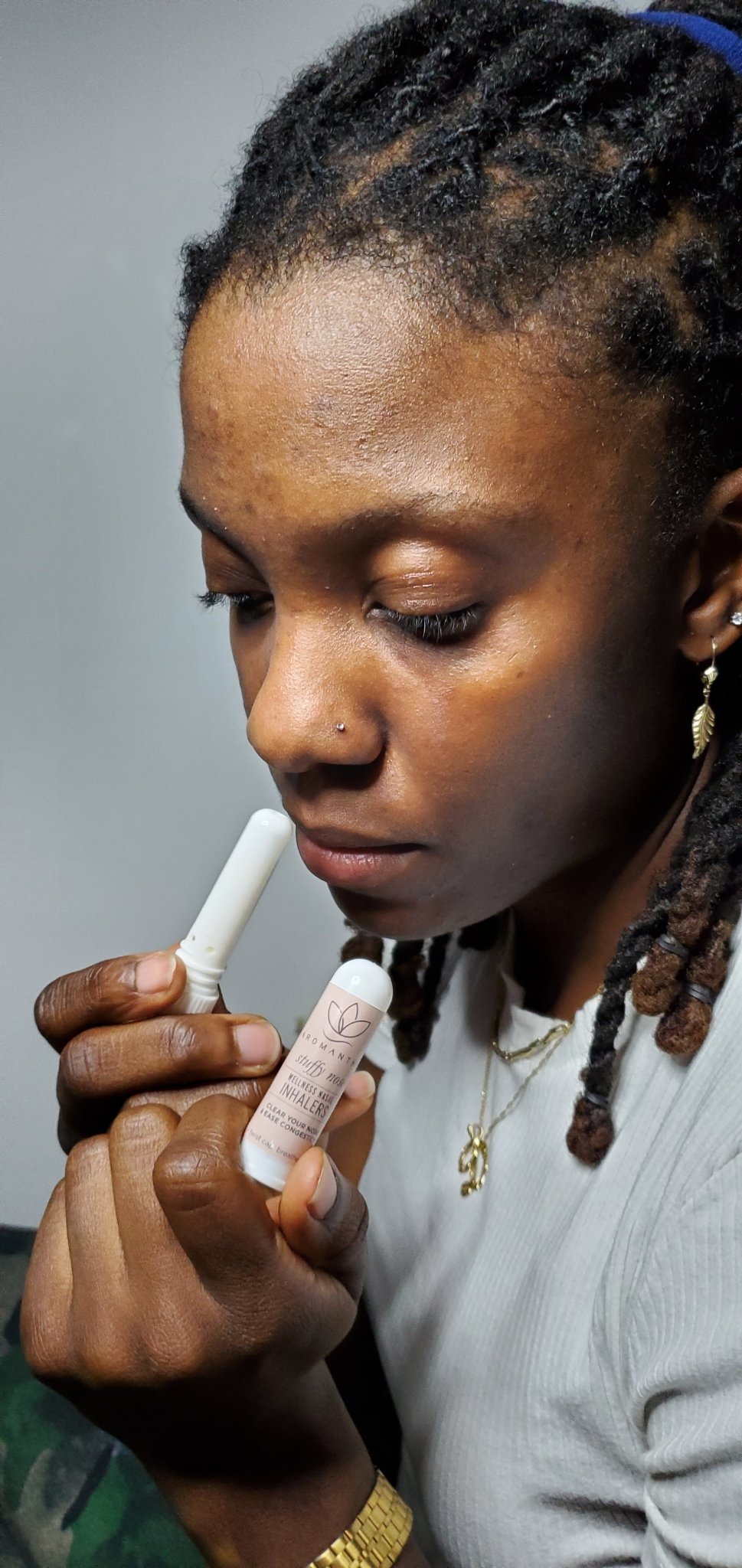
Can Essential Oils Control Our Mood?
Angelica HaviarasShare

Aromatherapists use essential oils (EO’s) to help their clients improve ailments related to their physical, spiritual and mental well-being. We know that certain oils can help with specific symptoms based on the plant’s chemical makeup that the oil is extracted from. Some oils like, vetiver, can help with reducing pain while others, like lavender, kill bacteria. Scientific research is beginning to show us the evidence that EO’s can trigger and alter our brain function (Lua & Zakaria, 2012).
How Does it Affect Our Brain?
The influence that aromatherapy has on our brain is due to two contributing systems in human biology: the olfactory system and limbic system. According to Putri et al.:
“When inhaling aromatic molecules, they move to the top of the nose where molecules come into contact with special nerve cells called olfactory cells. These cells have small hair that recognizes certain scents through a 'lock and key' process. This means that each hair will only recognize a particular aroma. This process produces nerve impulses that lead to the limbic system, the part of the brain that has the most influence on survival, instincts and emotions. According to scientists, nerve signal activity that passes through this area can cause mood changes by changing brain chemistry.” (2019).
The olfactory system helps signal nerve impulses that lead to the part of the brain that runs off the limbic system. The limbic system is responsible for our “fight or flight” action. It’s in charge of how we respond to challenges, stress, anxiety, fear, and survival (Lv et al., 2013).
Essential Oils & the Blood-Brain Barrier
According to Lua & Zakaria, EO’s can pass something called the blood-brain barrier, which is how we quickly send messages to the brain (2012).
How The Whole Process Works
When you inhale an essential oil like Lavender, the nerves in your nose recognize the particular smell and send messages to the limbic system in your brain. Once there, the chemical makeup of the lavender is changing the chemistry in your brain sending signals to the body that it’s time to calm down and relax. We know this because scientific research has supported that lavender oil is useful in reducing symptoms related to stress, anxiety, depression and insomnia (Lv et al., 2013).
So, next time you feel anxious, over excited, frustrated, or have trouble sleeping look into how aromatherapy products can help you out. Check out our therapeutic wellness inhalers or shop our full product collection.
References:
Lua, P. L., Salihah, N., & Mazlan, N. (2015). Effects of inhaled ginger aromatherapy on chemotherapy-induced nausea and vomiting and health-related quality of life in women with breast cancer. Complementary therapies in medicine, 23(3), 396–404. https://doi.org/10.1016/j.ctim.2015.03.009
Lv, X. N., Liu, Z. J., Zhang, H. J., & Tzeng, C. M. (2013). Aromatherapy and the central nerve system (CNS): therapeutic mechanism and its associated genes. Current drug targets, 14(8), 872–879. https://doi.org/10.2174/1389450111314080007
Putri, I.N., Amelia, R., & Rahayu, S. (2019). The chamomile aromatherapy reduce the scale of nausea. International Journal of Public Health Science (IJPHS), 8(3), 294-299. Issn: 2252-8806, doi: 10.11591/ijphs.v8i3.20252
This blog post was not intended to treat, prevent or cure any illness; and is not intended to be a substitute for medical advice provided by a doctor/ licensed professional.
